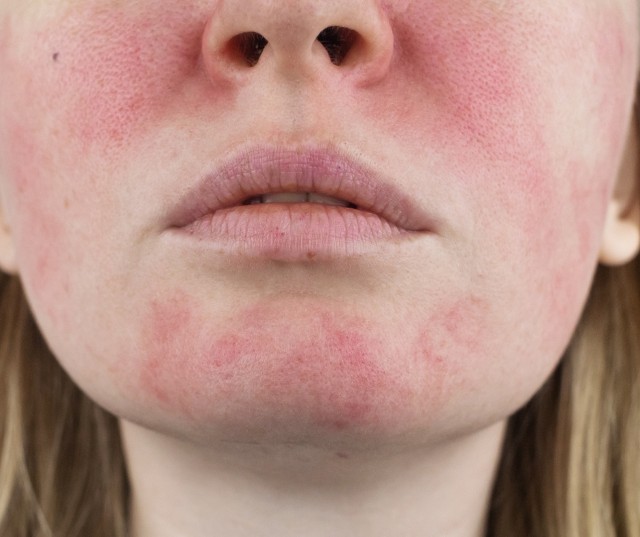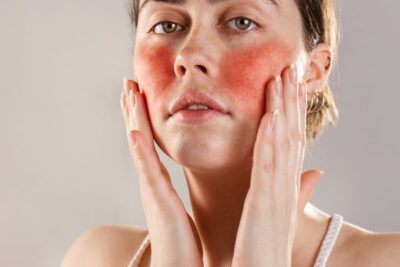March 3, 2023
Rosacea is a chronic, inflammatory skin condition affecting approximately 9.5% of the Canadian population (Mayo Clinic Proceedings, 2021). Often characterized by facial redness, visible blood vessels, and acne-like bumps, Rosacea can significantly impact an individual’s quality of life (QoL) (Journal of the American Academy of Dermatology, 2020). As a medical professional, understanding rosacea triggers and offering evidence-based coping strategies can significantly improve the management of this condition.
Here we discuss the triggers, effective coping strategies, self-care tips and treatments for rosacea to help you manage your condition.
Rosacea Triggers
Numerous factors can exacerbate rosacea symptoms (British Journal of Dermatology, 2019). The most common triggers include:
1) Sun exposure
2) Emotional stress
3) Hot weather
4) Wind
5) Alcohol consumption
6) Spicy foods
7) Hot beverages
8) Skincare products
9) Exercise
10) Cold weather
Coping Strategies and Self-Care Tips
Sun protection: Wearing broad-spectrum sunscreen with a minimum SPF 30 and seeking shade when outdoors is advised. Various studies have confirmed that UV exposure is a major rosacea trigger (JAMA Dermatology, 2018). It’s also recommended to use sun-protective clothing, hats, and sunglasses to minimize sun exposure.
Stress management: There is an emphasis on the importance of stress reduction through relaxation techniques such as mindfulness, yoga, or meditation. A study in the Journal of Clinical and Aesthetic Dermatology (2020) found that stress management can significantly improve rosacea symptoms.
Skincare routine: Patients are advised to use gentle, fragrance-free cleansers and moisturizers designed for sensitive skin. According to the Canadian Dermatology Association (2021), avoiding abrasive or irritating skincare products can help reduce rosacea flare-ups.
Diet modifications: If you are living with Rosacea, it is recommended you avoid known dietary triggers such as alcohol, spicy foods, and hot beverages. A Dermatology Practical & Conceptual (2020) study found that a low-glycemic diet may improve rosacea symptoms.
Temperature control: As part of the treatment plan, dermatologists also educate patients on the importance of regulating their body temperature by dressing in layers, using fans or air conditioning, and avoiding hot baths or saunas (Canadian Dermatology Association, 2021).
Conclusion
Living with Rosacea can be challenging. If you or your loved one is living with this skin condition, understanding the common triggers, coping strategies, and self-care tips can help you or your loved ones better manage this condition and improve your quality of life. Moreover, seeking professional help from a dermatologist can ensure you are on the right treatment plan, one that is based on your individual needs and preferences.
At Vida Dermatology, we have skilled doctors that know what is suitable for your skin. Our dermatologists help you feel like yourself again by curating treatments just for you. Visit us to learn more!



